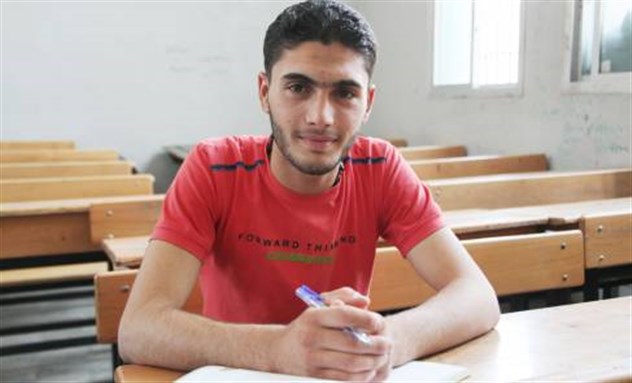Haytham is a war child who lives with his family in Khan Eshieh camp, home to some nine thousand Palestine refugees and one of the most embattled areas of the Syrian capital, Damascus.
His story is increasingly common among UNRWA students in Syria. "I had to escape and hide when rockets fell near the school," he says. "It was horrifying. The fighting intensified and we lived in constant fear of bombing and violence. I studied in a state of high anxiety with the sounds of bullets and shelling."
As world leaders gather today in New York at the Summit on Refugees and Migrants, I am struck by how often in recent months I have been confronted with the question of why the world should continue to care about Palestine refugees when there are so many other pressing issues to deal with.
The world needs to care because the situation of Palestine refugees has never been as critical since 1948 and 1967, because the lack of political horizon and personal opportunities is draining them of their hope, creativity and resolve. The world should also care because a young generation of Palestine refugees is growing up losing faith in negotiation and diplomacy. In the West Bank and Gaza, most young people were born after the Oslo Peace agreement. They were told by the world that if they opted for moderation and a negotiated path, justice would be served. But it was not.
Palestine refugees experience every single day the gap between rights and principles and their personal realities, be it as a result of the disastrous Syrian conflict or the occupation and blockade in the West Bank and Gaza. Often Palestine refugee students will say to the foreign visitor: "We learn about human rights in UNRWA schools, we feel strongly about them, but we ask the world, why do these rights not apply to us?"
The Summit will endorse the “New York Declaration for Refugees and Migrants” which focuses on the need to protect the human rights and dignity of these vulnerable people in accordance with international law, to uphold international humanitarian law and humanitarian principles, to ensure the welfare of refugees and to address the root causes of their displacement.
The summiteers are clear that “no one must be left behind” and I urge that this must include the 5.2 million Palestine refugees registered with UNRWA. They represent fourty-four percet of the world’s long-term refugees, the largest in scale and most protracted in duration of any refugee situation today.
Through six-and-a-half decades of supporting these refugee populations, UNRWA has accumulated a vast body of expertise and capacity, which is invaluable to the international community as it strives to achieve the outcomes of the summit.
Specifically, UNRWA has been a frontline responder helping to mitigate shocks and trauma of five Middle East wars in the last ten years alone – one in Lebanon, one in Syria and three in Gaza -- while working with host governments and donors to provide long-term development programs in education, health, relief and social services.
The New York Declaration also emphasizes the importance of providing quality education to refugees in safe learning environments within months of initial displacement. UNRWA has demonstrated its ability to meet this objective time and time again through our pioneering Education in Emergencies program, most recently in Gaza, Lebanon and Syria, as part of our commitment to provide quality and inclusive education for all 500,000 Palestine refugee children in our seven hundred schools.
UNRWA draws strength from the courage and perseverance of young refugees like Haytham who are prepared to go to such great lengths to study and keep some basis for a better future alive. Despite his situation, he still dreams of being a surgeon.
We are determined to do everything it takes to preserve the access of our students to their schools and education.
I therefore strongly welcome the call in the New York Declaration for Agencies, such as UNRWA, to be provided with sufficient funding so that we can carry out our UN mandated activities effectively and in a predictable manner. But we are currently facing a significant shortfall in our operational budget. This is because need is growing and the refugee population is increasing.
Last year, we came perilously close to having to delay the start of our school year for half a million children in the Middle East because of insufficient funding. It is imperative that UNRWA’s shortfall is seen against a background of our positive contribution towards stability and human dignity in the Middle East – a prime locus of much of the displacement with which the international community is currently grappling.
The risks of radicalization of isolated and desperate young people are huge. Extremists are on the constant outlook for new recruits. We have a collective responsibility to protect Palestine refugees from such risks.
I am therefore convinced that renewed attention to Palestine refugees and Palestine refugee youth is urgent. It is a matter of humanity. But it is also a real investment in the stability of many areas of the Middle East. Overlooking that is a risk UN member states should not be taking.
We can close our eyes on the denial of dignity and rights of Palestine refugees today but it will only be worse, more dramatic and more dangerous when we reopen them a few years from now. And the pressure on host countries and UNRWA will have further intensified.
Decisive action, on all fronts, to address the roots causes of their displacement and the needs engendered by repeated crises and protracted refugee-hood is called for; because the life and future of Haytham matters.









